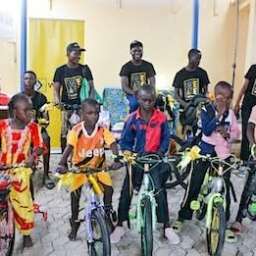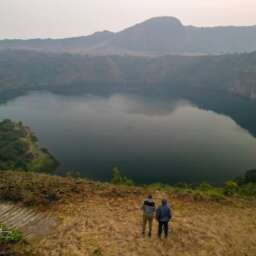(Business in Cameroon) – A loan agreement has been signed in Yaounde by Alamine Ousmane Mey, Minister of Economy, Planning and Regional Development, and Léandre Bassolé, Director General for Central Africa at the African Development Bank (AfDB), for an approved project of 89.2 billion XAF, which at improving employability, fostering entrepreneurship, and supporting socio-economic development in one of Cameroon’s most disadvantaged regions, under the umbrella of CAP2E.
CAP2E is part of the broader Special Program for the Reconstruction and Development of the Far North Region (PSRDREN). Its primary goal is to provide young people and women with skills that meet market demands while enhancing access to social infrastructure that is both gender-sensitive and resilient to climate change. The project is scheduled to run over a five-year period (2025–2029) and is structured around three main components: capacity building, entrepreneurship support, and infrastructure development.
Under the capacity building component, vocational training centres will be established and upgraded to provide technical and professional training in sectors such as agriculture, livestock management, food processing, carpentry, tailoring, mechanics, and digital skills. Modern farming techniques, including the introduction of high-yield and drought-resistant crops to approximately 10,000 farms, are expected to increase output by 30–40%, directly improving household food security and income levels. Vocational training in trades like carpentry, tailoring, and agro-processing is designed to enable participants to establish small businesses, thereby generating employment opportunities within local communities.
The entrepreneurship support component focuses on providing micro-loans, grants, and business development services to young people and women. Micro-loans ranging from 500,000–1,000,000 F CFA per entrepreneur are expected to empower hundreds of beneficiaries to start or expand businesses in areas such as food processing, artisan crafts, and services. Cooperative structures are encouraged to enhance collective bargaining, improve access to markets, and increase profitability, contributing to broader economic activity and resilience in the region.
Infrastructure development under CAP2E aims to enhance market access and productivity. Upgrades to roads linking rural areas with major towns such as Maroua, Mokolo, and Kousseri are projected to reduce transport costs by 20–30%, making it easier for producers to reach markets and lowering consumer prices. Off-grid solar installations will provide reliable electricity to workshops and storage facilities, allowing longer production hours and the preservation of perishable goods.
According to CAP2E project documentation, if 5,000 individuals receive training annually and 70% achieve employment or self-employment, thousands of households could experience income gains of 20–30% within five years. Such measurable outcomes are expected to contribute to reducing the region’s poverty rate and strengthening the local economy, creating a more resilient and sustainable socio-economic environment.
By linking skills development, entrepreneurship support, and infrastructure improvements, the CAP2E initiative demonstrates a structured approach to tackling extreme poverty in the Far North. The loan provides the financial foundation for a tangible impact on employment, economic activity, and household incomes, offering a data-driven pathway toward socio-economic transformation in one of Cameroon’s most vulnerable regions.
Mercy Fosoh

































